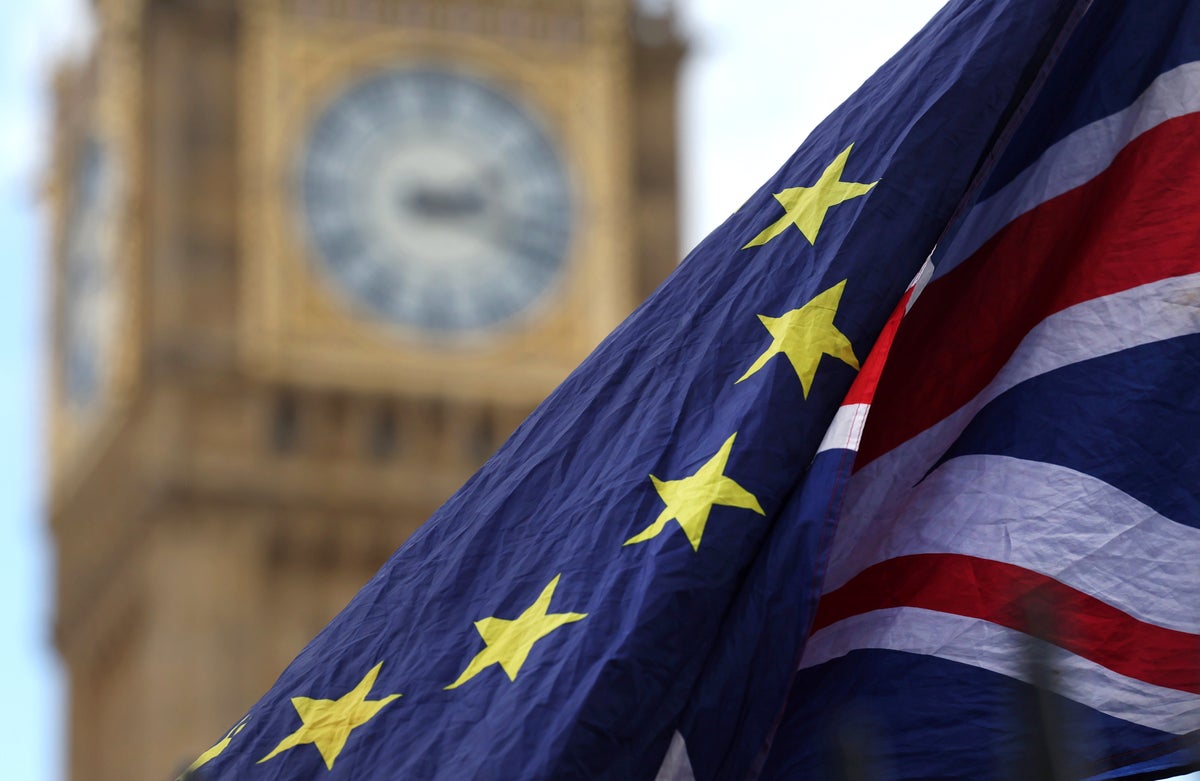
British firms are increasingly pessimistic about the benefits of post-Brexit free trade deals, according to the government’s own research.
The Department for Business and Trade’s survey of more than 3,000 companies revealed that three out five (58 per cent) now think the free trade deals will have no positive impact on their business.
That’s up from 54 per cent in the previous year – a sign of growing dismay about the opportunities the agreements can offer, despite promises that Brexit can help boost “global Britain”.
Less than one third (31 per cent) of businesses believe trade deals would have a positive effect, down from 33 per cent the previous year.
It comes as the latest public polling shows most voters are gloomy about Brexit’s impact on Britain’s juddering economy. Some 61 per cent believe the UK’s exit from the EU has left the country worse off.
The annual government survey of British companies’ exporting behaviour shows that concerns relating to the UK’s exit from the EU “continued to be prominent” – with firms citing red tape and supply chain issues.
In 2017, almost three in four (73 per cent) companies said there was a lot of demand for UK goods and services – but the figures dropped to 55 per cent in the latest survey. And 49 per cent cent said there had been less demand for goods and services since Brexit, an increase from 39 per cent in the previous survey.
William Bain, head of trade policy at the British Chambers of Commerce, said: “It doesn’t surprise me that companies feel pretty sore about things and that is what our survey data shows as well.
“But it is also true that we’re in a better place than we were last year and the government has been listening to some of our concerns,” he said.
Dover has seen increased congestion since Brexit red tape was imposed, hitting UK businesses— (PA)
Tina McKenzie of the Federation of Small Businesses said the findings “paint a mixed picture of exporting”, before calling on ministers to reduce post-Brexit red tape as much as possible.
She added: “It is, however, encouraging to see that 42 per cent of all businesses believed UK exports would increase over the next five years, and the government should keep this momentum up by making international trade easier for firms.”
The government business survey did show there is still some optimism about the future. The proportion of firms which say that there is a lot of opportunity for their business to grow internationally increased to 58 per cent – up from 52 per cent in 2021.
A spokesman for the Department for Business and Trade said UK exports rose to £852bn in the year to the end of June. The government also expected to see the fruits of recently struck deals with Australia and New Zealand in the months and years ahead.
The government hopes for trade spikes from UK deals with Australia and New Zealand— (PA)
“Selective use of polling stats only paints half a picture,” said a spokesperson for the department. “Fifty-eight per cent of these same businesses said there is a lot of opportunity to grow internationally. And the majority of companies who are ready to export, or export already, are using our expert support services to grow their business.”
Meanwhile, Brexit border checks on food, animal and plant products imported from the EU are expected to be delayed for a fifth time. The rules had been set to begin in October but are to be pushed back again by the government over fears they will fuel inflation.
Ms McKenzie said it “might be helpful news for some, [but] small firms are still waiting for official word from government”. She added: “They need certainty to be able to plan ahead, especially when approaching Christmas.”
It comes as the latest public polling revealed growing support for a second Brexit referendum on EU membership. Nearly half of Britons want another in the next 10 years, the latest YouGov survey showed.
More than a quarter of people (26 per cent) support a referendum by as soon as the end of 2023. And some 20 per cent of people who voted Leave want another referendum within the next 10 years.
When asked how they would vote if there was a referendum on rejoining the EU, half of the participants said they would vote to rejoin. By contrast, only 30 per cent said they would vote to stay out, while seven per cent said they would not vote.







